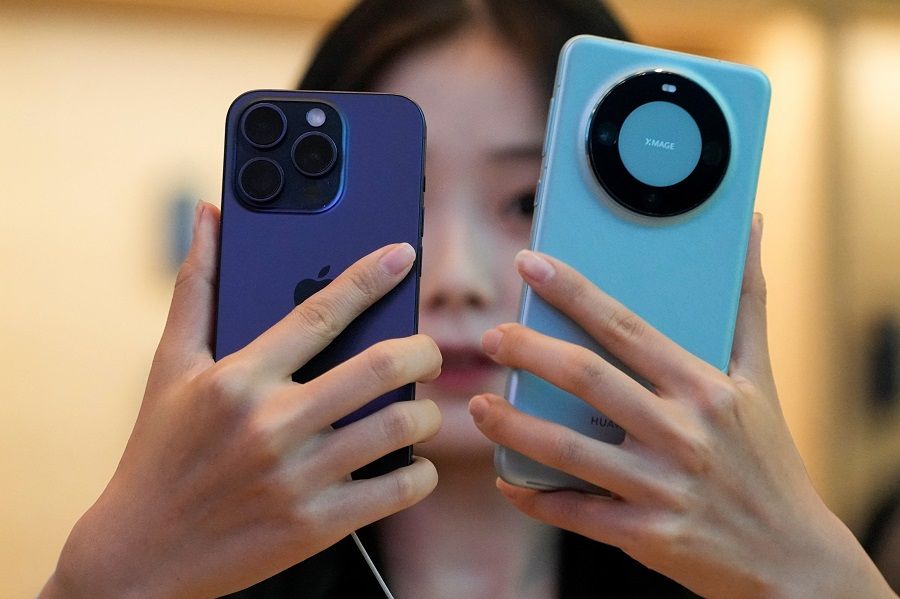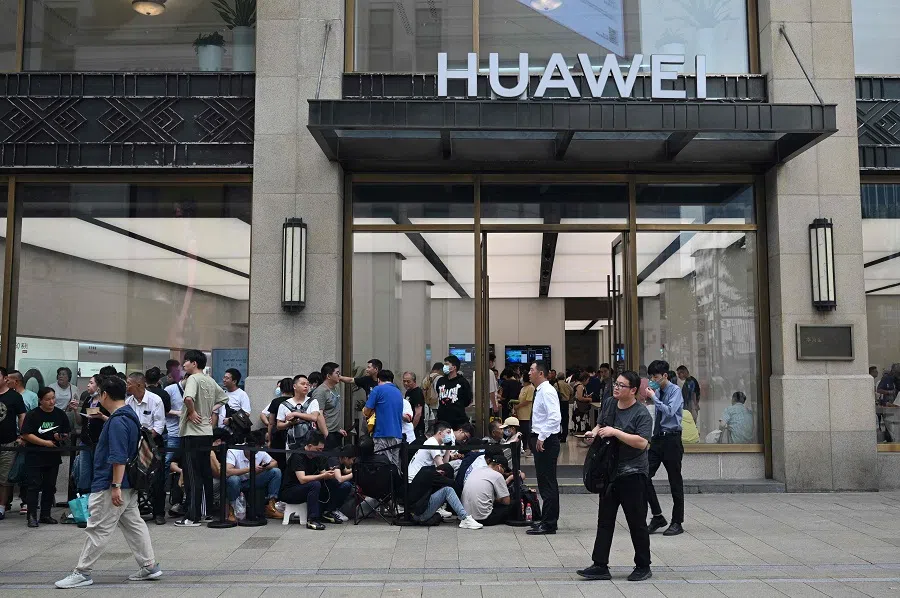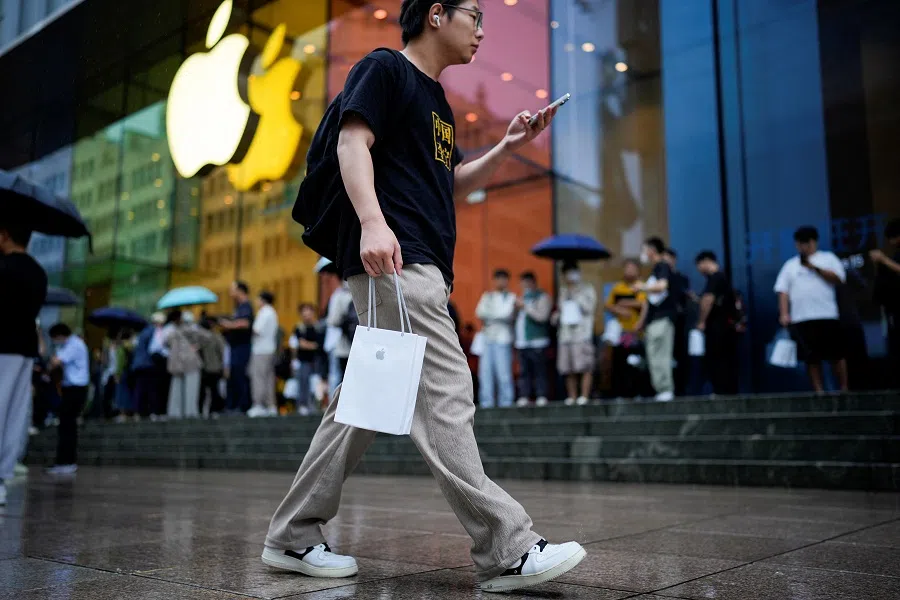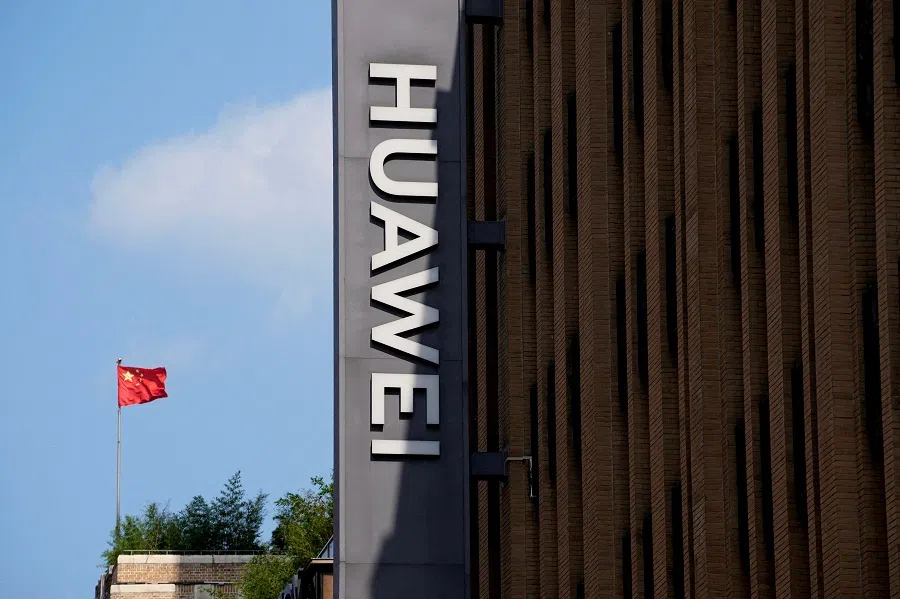China-US smartphone tech war: Apple losing the Chinese market?
China's smartphone giants have made great strides over the past decade or so, catching up with companies such as Apple in terms of sales as well as research and development. However, there is still a long way to go for China's smartphone ecosystems to crack the global market.

Since Huawei quietly launched its new Mate 60 Pro smartphone in late August, articles titled "Huawei is Well Fed, Apple is Falling" (华为吃饱, 苹果跌倒) have been circulating on the Chinese internet, claiming that Huawei has snatched away Apple's market share in China. In the eyes of Chinese public opinion, Apple's fourth quarter results released on 2 November are proof of these claims.
Apple's report said that the company had logged in its fourth straight revenue decline, matching a streak it suffered in 2001. Despite a 10.79% year-on-year increase in net profit, its revenue declined 0.72% year-on-year to US$89.5 billion. Apple's Greater China sales fell 2.5% year-on-year to US$15.1 billion, more than the decline in Apple's worldwide figures.
Market confidence took a hit, and Apple shares fell over 3% in extended trading.
Market performance
Apple's lacklustre performance was in stark contrast to Huawei's earnings report released in late October, which showed that Huawei achieved revenue of 456.6 billion RMB (US$62.4 billion) for the first three quarters of the year, up 2.4% year-on-year.
Apple's sales were long declining even before the launch of Huawei's Mate 60 Pro, and this can be attributed to the China-US tech war, Apple's supply constraints, lack of innovation, and controversies over its quality.

Statistics from market research firm Counterpoint Research showed that China's overall smartphone market fell 3% year-on-year in the third quarter, with Huawei's smartphone sales skyrocketing 37% year-on-year, while Apple's fell 10%.
These statistics show that Huawei's breakthrough in smartphone hardware has impacted Apple to a certain extent. In the past, when Huawei's Consumer Business Group CEO Richard Yu repeated the phrase "leading by a large margin (遥遥领先)" during Huawei's product launches, netizens would mock that Huawei was actually slipping behind. But in the eyes of Huawei supporters now, its sales growth is truly "leading by a large margin".
However, there are complex reasons for Apple's sluggish performance, and it is not purely due to Huawei. Apple's sales were long declining even before the launch of Huawei's Mate 60 Pro, and this can be attributed to the China-US tech war, Apple's supply constraints, lack of innovation, and controversies over its quality.
Software development
Amid the intensifying hardware battle between Chinese and American smartphone giants, the software battle is also in full swing.

After Huawei was put on the US's Entity List in 2019, it launched HarmonyOS, kicking off an ecosystem battle between Chinese and American smartphone giants.
... Huawei has stepped up efforts to develop its own ecosystem independent of Android.
The US Entity List prevents Huawei from procuring US products or services without approval from the government, including access to the Google Play store and other Android applications and services. But Huawei can still use the Android Open Source Project (AOSP), and it has continued to offer support for Android applications on its phones for the past few years.
Development of ecosystems
However, Huawei has stepped up efforts to develop its own ecosystem independent of Android. In September, Huawei announced that it will launch the HarmonyOS NEXT system next year, with all its devices fully utilising the self-made system. This meant that the new generation Harmony could be separated entirely from the AOSP, and only support Harmony's own kernel (core of an operating system) and applications.
Besides Huawei, the Xiaomi 14 equipped with the new HyperOS system was also released in October. According to reports by Chinese media outlets, Xiaomi founder Lei Jun claimed that the Xiaomi 14 is a next-level upgrade that would benchmark itself against the iPhone 15 Pro. This week, Vivo also released its own BlueOS, with Vivo's vice-president Zhou Wei stating that BlueOS is not compatible with Android.
... they have to surpass the competition in hardware and strengthen their ecosystem, and ensure that ecosystems other than Apple or Android can be integrated into the world.
Amid the China-US tech war, Chinese smartphone giants are accelerating efforts to build their own ecosystem in a bid to separate themselves from Western ecosystems and reduce the risk of being fenced in or contained.

But the research and development of Chinese smartphone ecosystems is still in the early stages, with companies competing with one another and doing their own explorations.
Take the Harmony system, one of the earlier systems constructed. Statistics released by Huawei in September showed that the Harmony ecosystem is installed on more than 700 million devices, and more than 2.2 million developers are registered with HarmonyOS. In comparison, there are more than 3 billion smartphone users for the Android ecosystem, and more than 5.9 million mobile application developers are registered with Android, far outstripping the numbers for Harmony.
Markets in China and elsewhere
In the China-US smartphone tech war, China's development in the smartphone hardware sector is now quickly catching up with the US. But hardware is only one of many arenas in which Chinese and US smartphone giants are competing; the competition between both sides is currently focused on the Chinese market, while the other three quarters or so of the world's smartphone market lies outside of China.
For Chinese smartphone giants to truly be far ahead of the pack in the global smartphone industry, and become global industry leaders, they have to surpass the competition in hardware and strengthen their ecosystem, and ensure that ecosystems other than Apple or Android can be integrated into the world.
Huawei's breakthrough in development in the past few months has shown that even under US technological containment, for Chinese firms to "lead by a large margin" in the smartphone sector is not an impossible goal. But realistically, there is still a very long way to go.
This article was first published in Lianhe Zaobao as "中国手机巨头从"遥遥领先"到"越级对标"".





